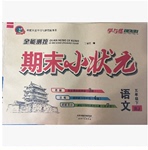题目内容
单词填空(用单词的正确的形式填空)
1.It's said that they have been for twenty years. (结婚)
2.She deeply losing her temper. (后悔)
3.My is to become a pilot. 志向
4.I finally made with her in Paris.(联系)
5.Her husband's violence her. (使…恐惧,惊吓 )
6.Children love up as a hero.(打扮;装饰)
7.She the temptation to tell him what she really thought.(克制,抵制)
8.The old couple have brought up three children(遗弃,抛弃的)
9.She deeply losing her temper (后悔)
10.We need to with Eastern Europe more. (贸易)
 全能测控期末小状元系列答案
全能测控期末小状元系列答案Apple picking | |
Apple picking is always a popular fall activity, with families looking for a fun way to spend time together outdoors. Check out some options on where and how to pick close to Toronto: | |
Where to pick | Pine Farms Tel: 905-833-5459 Hours: Tuesday to Sunday 9 am to 5 pm Details: Pick your own apples from mid-August to November. |
Albion Farms Tel: 905-584-0354 Hours: Daily 10 am to 6 pm Details: Pick your own apples on weekends only | |
Watson Farms Tel: 905-623-9109 Hours: Monday to Friday 9 am to 8 pm Weekends 9 am to 6 pm Details: Pick your own apples only in early September. | |
Brooks Farms Tel: 905-473-3920 Hours: Daily 9 am to 5 pm Details: Picking your own apples is not available(可得到的),but apples are available in the farm market. | |
Willis Family Fruit Farms Tel: 905-876-2606 Hours: Weekends 10 am to 8 pm Details: Pick your own apples only in September and October. | |
Apple picking tips | Call first: Certain apple types may not be available because demand and farm hours can change without notice. So call ahead before setting out. |
What to bring: Some farms provide containers(容器) for you to carry the fruit home, but it’s not a bad idea to bring them yourself. Comfortable shoes and clothes that you don’t mind getting dirty are a must. And keep the weather in mind: pack a sweater for cooler days, and bring sun cream. | |
1.According to the author, apple picking ______ .
A. helps farmers harvest the fruit
B. can bring great pleasure to families
C. is better for teenagers than for adults
D. is becoming more and more popular in cities
2.If you are only free after 6 pm on Tuesday, you can choose _____ .
A. Pine Farms B. Albion Farms
C. Watson Farms D. Willis Family Fruit Farms
3.What can we learn from the passage?
A. You may dirty your clothes when picking apples.
B. Apples on all the farms are on sale at the same time.
C. You have to pay to take the apples you have picked home.
D. You are not allowed to take containers for carrying apples.
书面表达
假设你是光明中学的学生李华,得知国外某大学历史悠久,课程灵活,有意申请到该校英语系学习。请根据表格信息,用英语写一封自荐信。
个人信息 | 男,17岁,高三年级学生 |
性格与潜质 | 开朗,喜欢与人交往;有良好的团队精神;适应能力强 |
学习与获奖情况 | 学习刻苦,成绩名列前茅 曾获学校英语演讲比赛一等奖 |
注意: 1.词数100左右。 2.信的开头和结尾已经给出。
提示词:英语演讲比赛—English Speech Contest
Dear Sir,
My name is Li Hua from Guang Ming High School in Beijing, China.
________________________________________________________________________
________________________________________________________________________
________________________________________________________________________
________________________________________________________________________
________________________________________________________________________
________________________________________________________________________
Looking forward to your early reply.
Yours,
Li Hua

